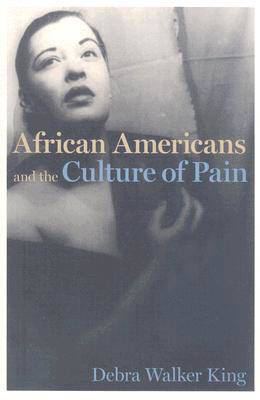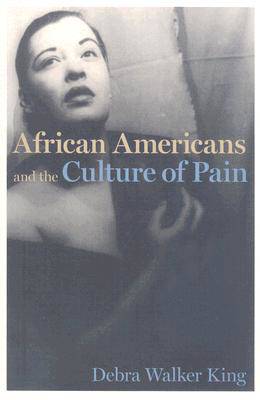
- Afhalen na 1 uur in een winkel met voorraad
- Gratis thuislevering in België vanaf € 30
- Ruim aanbod met 7 miljoen producten
- Afhalen na 1 uur in een winkel met voorraad
- Gratis thuislevering in België vanaf € 30
- Ruim aanbod met 7 miljoen producten
Omschrijving
In this compelling new study, Debra Walker King considers fragments of experience recorded in oral histories and newspapers as well as those produced in twentieth-century novels, films, and television that reveal how the black body in pain functions as a rhetorical device and as political strategy. King's primary hypothesis is that, in the United States, black experience of the body in pain is as much a construction of social, ethical, and economic politics as it is a physiological phenomenon.
As an essential element defining black experience in America, pain plays many roles. It is used to promote racial stereotypes, increase the sale of movies and other pop culture products, and encourage advocacy for various social causes. Pain is employed as a tool of resistance against racism, but it also functions as a sign of racism's insidious ability to exert power over and maintain control of those it claims--regardless of race. With these dichotomous uses of pain in mind, King considers and questions the effects of the manipulation of an unspoken but long-standing belief that pain, suffering, and the hope for freedom and communal subsistence will merge to uplift those who are oppressed, especially during periods of social and political upheaval. This belief has become a ritualized philosophy fueling the multiple constructions of black bodies in pain, a belief that has even come to function as an identity and community stabilizer.
In her attempt to interpret the constant manipulation and abuse of this philosophy, King explores the redemptive and visionary power of pain as perceived historically in black culture, the aesthetic value of black pain as presented in a variety of cultural artifacts, and the socioeconomic politics of suffering surrounding the experiences and representations of blacks in the United States. The book introduces the term Blackpain, defining it as a tool of national mythmaking and as a source of cultural and symbolic capital that normalizes individual suffering until the individual--the real person--disappears. Ultimately, the book investigates America's love-hate relationship with black bodies in pain.
Specificaties
Betrokkenen
- Auteur(s):
- Uitgeverij:
Inhoud
- Aantal bladzijden:
- 224
- Taal:
- Engels
- Reeks:
Eigenschappen
- Productcode (EAN):
- 9780813926810
- Verschijningsdatum:
- 4/03/2008
- Uitvoering:
- Paperback
- Formaat:
- Trade paperback (VS)
- Afmetingen:
- 154 mm x 231 mm
- Gewicht:
- 290 g

Alleen bij Standaard Boekhandel
Beoordelingen
We publiceren alleen reviews die voldoen aan de voorwaarden voor reviews. Bekijk onze voorwaarden voor reviews.











